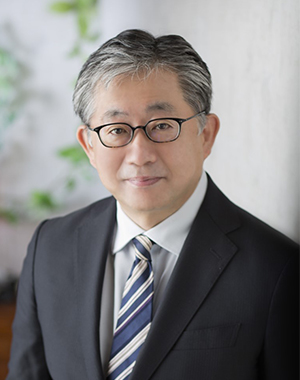Message from the President

The 37th Japanese Society of Neuroendovascular Therapy Academic Meeting (JSNET 2021) will be held from Thursday, November 25, 2021, to Saturday, 27 for three days at Fukuoka Convention Center and Fukuoka Sun Palace. I am sincerely honored to host this conference. I would like to thank all of our seniors and members across the country for their guidance and support.
Endovascular treatment for central nervous system disorders has established a strong position, particularly in the treatment of cerebrovascular diseases. Twenty years have passed since coil embolization for cerebral aneurysms, and carotid artery stenting began to take place in Japan. Numerous advances have been made in such fields as acute recanalization, flow diverter, and robotics. It used to be recognized as an alternative to minimally invasive treatment for the elderly and patients with comorbid diseases. However now it is often the first treatment choice because of its safety and effectiveness.
In what direction are we going from now on? More and more treatments, such as treatment for cerebral aneurysms and acute revascularization, will be completed by endovascular surgery. And as other areas of development expand treatment indications, opportunities for collaboration will increase. Or with the advent of effective molecularly targeted drugs, there may be areas that neuro-endovascular therapy loses its role. In anticipation of these advances in endovascular treatment and the development of other fields, we will organize the conference program that will allow us to reaffirm the current and future positions of “neuro-endovascular therapy” through various approaches, including technology, anatomy, neuroscience, large-scale clinical study, evidence, and social situations.
With the spread of the new coronavirus, our society is now in a difficult situation beyond imagination. Many people have lost their precious person, and many patients are still fighting against diseases. Many more are facing financial difficulties. Nevertheless, humanity has taken a complementary view of this challenge and spared no effort to “Rebuilding a New World” through technology and solidarity. It is an excellent source of encouragement to us. In this challenging situation, I asked myself the eternal principle we should inherit from our seniors and what we should pass on to the next generation. We have always had frontier spirits pioneering new treatments. We have always relied on science in confronting the existing therapies. This passion was reflected in our academic slogan, “Spirits and Science.” Of course, the leading players in the educational meeting are the members, who bring together the results of their practice and research. We would like to discover “unchangeable thing that is handed down from generation to generation” together through these presentations and discussions.
Miss Fuku Nakamura (Department of Calligraphy, School of Literature, Daito Bunka University) has written the calligraphy of our academic slogan, “Spirits and Science”. She was the daughter of Dr. Shinkyo Nakamura (Director of the Japan Art Crafts Association and Visiting Professor of the Museum of Art, Kyushu Sangyo University). We received beautiful, vibrant calligraphy that fits our theme perfectly. The pictures of Fukuoka City and Dazaifu Tenmangu Shrine and the conference logo are the works of Dr. Koichi Miki (Department of Neurosurgery, Fukuoka Red Cross Hospital). His medical artwork has been featured as the cover of many academic journals
In spite of the uncertainty, we would like to respond flexibly for the safe operation of the conference, including remote presentations and web co-located events (hybrid format), while also making arrangements to welcome you in Fukuoka City. I believe that many of our members are working hard against COVID-19 today. I would like to express my sincere respect for your dedication. We can overcome this difficulty and will see many of you smiling at the Fukuoka meeting in 2021.

